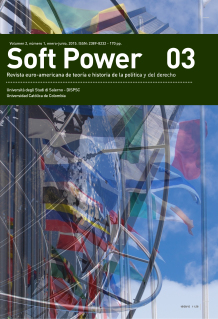Resumo
The theme of confession, present in the reflection of Michel Foucault since the early 1960s, pursued the same direction of his researches from the late 1970s concerning the problem of government and the studies of governmentality. Under this perspective, confession is taken as recognition through which the subject authenticates in himself or herself his or her own actions and thoughts. Therefore, it is not only a verbal act by means of which the subject states the truth of his or her being; confession also binds the subject to truth, throwing him or her in a relation of dependency regards the other, and, at the same time, modifying the relationship that he or she establishes with himself or herself. According to Foucault, this is what explains the massive growth of practices of confession in Western societies up until their actual inscription at the heart of procedures of individualization typical of modern political power. This paper explores Foucault’s analysis of confessional practices and its recent developments in the work of Giorgio Agamben (Opus Dei. Archeologia dell’Ufficio, 2012) and Roberto Esposito (Due. La macchina della teologia politica e il posto del pensiero, 2013).








